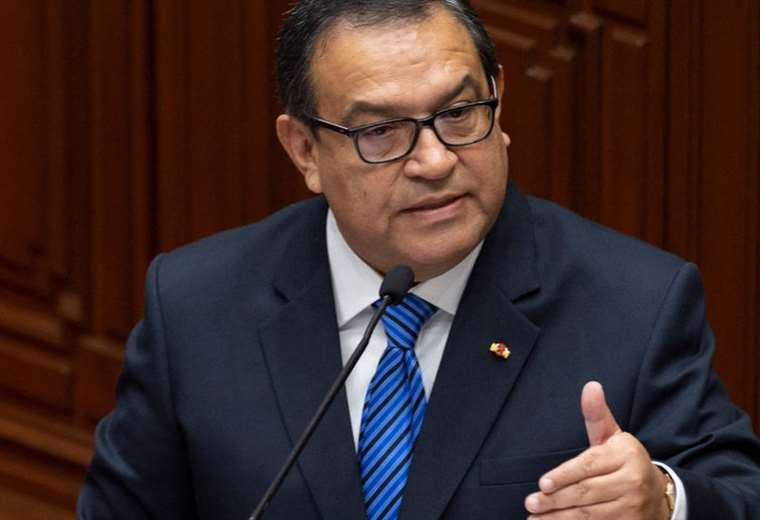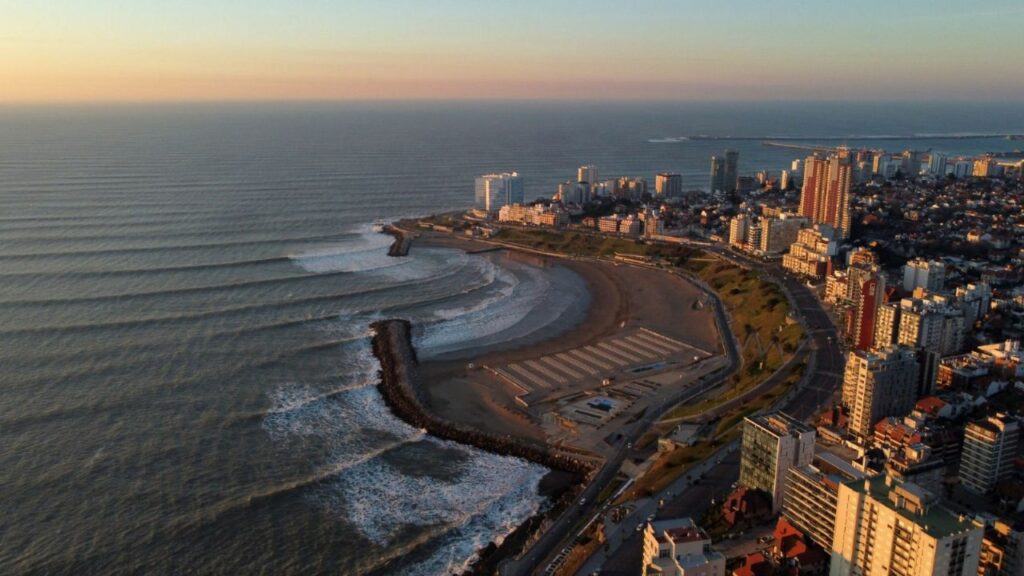January 17, 2023, 9:06 AM
January 17, 2023, 9:06 AM
It has become the most visible and controversial face of the government of Dina Boluarte, and despite being a legal expert on human rights, he is accused of leading a government that does not respect them.
Alberto Otárola is the Peruvian Prime Minister and the staunchest defender of the response to the protesters, who are demanding Boluarte’s resignation and immediate elections since Pedro Castillo was arrested and removed for his unconstitutional attempt to dissolve Congress.
The violent clashes between police and protesters have so far left a balance of 50 dead and more than a thousand injured, amid complaints of excesses in the police response.
Violence has skyrocketed in recent weeks as protesters attempt to seize airports in the south of the country, and the bloody day of January 9 in the city of Juliaca, which left 18 civilians and one police officer dead, directed criticism at the head of the cabinet and earned him reproach from civil defense organizations. The United Nations and the Inter-American Commission on Human Rights called for an investigation into the civilian deaths.
Removed for many years from the front line of Peruvian fickle politics, Otárola has assumed the difficult role of heading a government that defines itself as a transition and that has made it a priority to restore order and freedom of movement in the face of groups that block highways and attack airports in different parts of the country.
As prime minister, he holds the reins and is seen as the decision maker as declare a state of emergency in Lima and several departments, and the instructions given to the security forces to suppress the disorders.
The Prosecutor’s Office opened preliminary proceedings against him and the president for her possible role in the deaths of civilians still to be clarified.
The journalist César Hildebrandt, considered one of the most influential in the country, affirmed in his last weekly column that “Otárola is the one who gave the order for the Police to shoot to kill.”
Otárola defended herself against criticism by pointing out that “the one who has been attacked is the Police” and, despite the polls that reveal a growing unpopularity of the Executive, ruled out the resignation of the president because “it would open the doors to anarchy”.
How did this 55-year-old lawyer become a leading actor in the Peruvian political crisis?
moderate left
Born in the Department of Huaraz, Otárola graduated as a lawyer from the San Martín de Porres University.
He specialized from the beginning in the subject of human rightsprecisely for what is being questioned today, and his thesis was titled “International human rights law and its insertion in the Peruvian constitutional system.”
His specialization in the subject also led him to be an agent of the Peruvian State before the Inter-American Court of Human Rights in 2001.
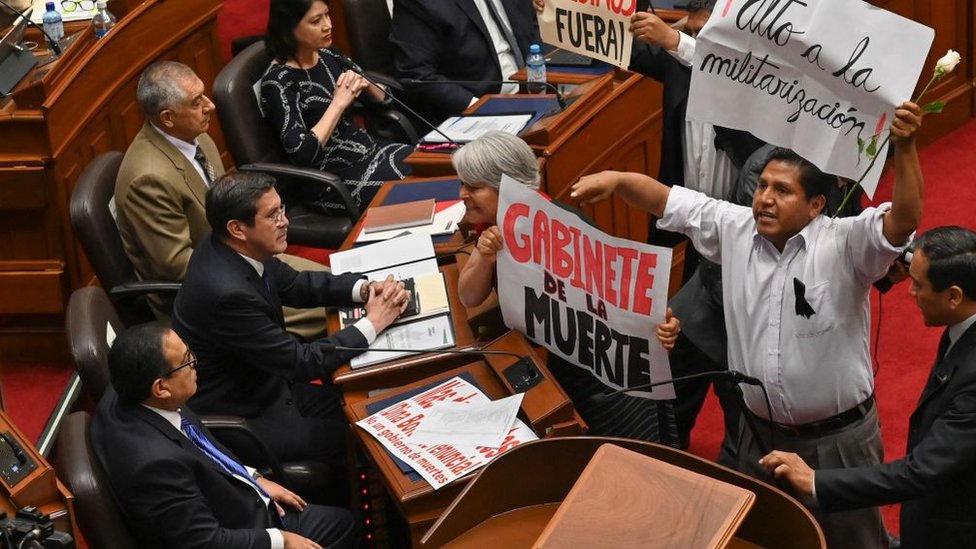
His is a biography that has revolved around law and politics.
He was one of the young people who in the 1990s grouped in the Revolutionary Socialist Party, a formation of moderate left led by the constitutionalist and politician Enrique Bernales.
Bernales was a prominent opponent of the government of Alberto Fujimori (1990-2000) and Otárola recognizes him as his political mentor. In fact, he dedicated a few words of tribute to him in his first speech as prime minister before Congress.
Considered by his acolytes as “the most outstanding disciple” of the teacher Bernales, with him he wrote several books on constitutional law.
A family involved in politics
Otárola is not the only one in his family dedicated to politics. His brother Freddy was a congressman and came to preside over the Peruvian Congress.
His first attempts at politics came in 1989, when he ran for district councilor for the Lima municipality of Miraflores. Years later he would try twice to be elected congressman.
It would not be until the government of Alejandro Toledo (2001-2006) when he took up his first high public office. After holding advisory positions in the Ministry of Defense, he was appointed Deputy Minister of Administrative and Economic Affairs of that department.
Ricardo Valdés, Vice Minister of the Interior at the time, who participated in frequent meetings with him, remembers him as “technically solvent, very knowledgeable about administrative law” and “someone who did not like to beat around the bush and was very achievement oriented.” .
Otárola then had as priority lto reform of the Armed Forces that the government of Toledo had projected.
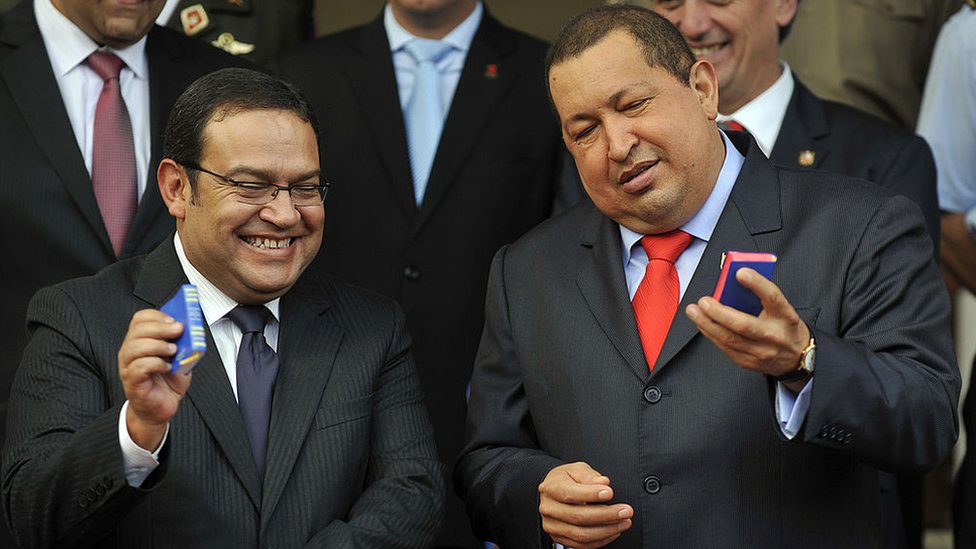
However, his great opportunity was given to him by President Ollanta Humala (2011-2016), with whom he was Vice Minister of Internal Order of the Ministry of the Interior. He then made the big leap from it, being appointed defense minister in December 2011.
But less than six months later, he resigned to avoid being censured by Congress after the scandal caused by the failed rescue mission of a group of hostages from the company Transportadora de Gas de Perú kidnapped by Sendero Luminoso militants in the town of Kepashiato, in Cuzco.
Several policemen died and others were abandoned in the jungle in an operation that caused outrage.
Juan Jiménez Mayor, prime minister in that government, told BBC Mundo that “he could not have a comfortable management and he had the bad luck of that episode, together with the hostility of Congress, cost him his position” in the Humala government.
But his ties to Humala went beyond politics. It was his lawyer and his wife, Nadine Heredia, and managed to get both released after their imprisonment was decreed for their alleged participation in the Odebrecht plot, a matter for which they are being tried today.
Return to the front line with Boluarte
Otárola followed the usual path of many Peruvian politicians and after his brief experience as a minister he disappeared from the front line.
Except for sporadic appearances in the media, he lived away from the spotlight.
Until last year, Dina Boluarte, still vice president and minister of Pedro Castillo, chose him as his lawyer to defend her from the constitutional accusation filed against her for being part of a private club when she had already accessed public office.
The complaint was filed and, after the events of December, Boluarte became president and appointed Otárola Minister of Defense again.
In such a condition, he was responsible for the military deployment in front of the protests in Ayacucho, where there have been ten civilian deaths since the fall of Castillo.
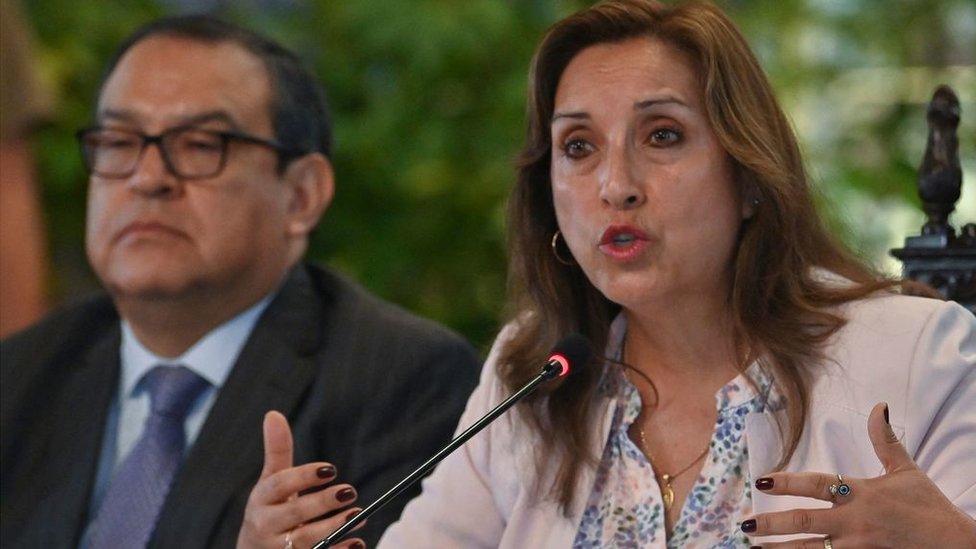
Soon after, Boluarte named him prime minister and Otárola directly took the reins of the crisis response.
Valdés believes that it was then that he made the mistakes that could condemn him politically. “The first thing he should have done before there were so many deaths was to summon the regional governors and propose an electoral advance; not doing so has reduced their legitimacy.”
Hildebrandt published that the government “ignores that even a repressive and clean policy must take place within the framework of a strategy.” For him, “the government of Otárola has none of that. It doesn’t even want to have it.”
Thus, despite the leftist past of both, Otárola and Boluarte have lost the support of the left of the Peruvian political arc and survive only with the right wing in Congress.
Jiménez Mayor affirms that “he has had to assume a rather uncomfortable responsibility, but he has failed to look for signs to generate greater empathy at a time when there is an increasing distance between the government and the population and a very serious crisis of credibility in the country”.
“Otárola is a dialogue man with whom agreements can be reached; the problem is that now there is no one to talk to“.
Richard Hancco Soncco, governor of the department of Puno, where the highest number of deaths has occurred, has made it clear to him by refusing to receive the officials sent by the central government to calm things down.
“Human rights were violated here,” says Hancco Sancco, who, like others on the Peruvian political scene, is no longer satisfied with a hypothetical resignation of the prime minister but openly demands his arrest.
Now you can receive notifications from BBC News World. Download the new version of our app and activate them so you don’t miss out on our best content.
